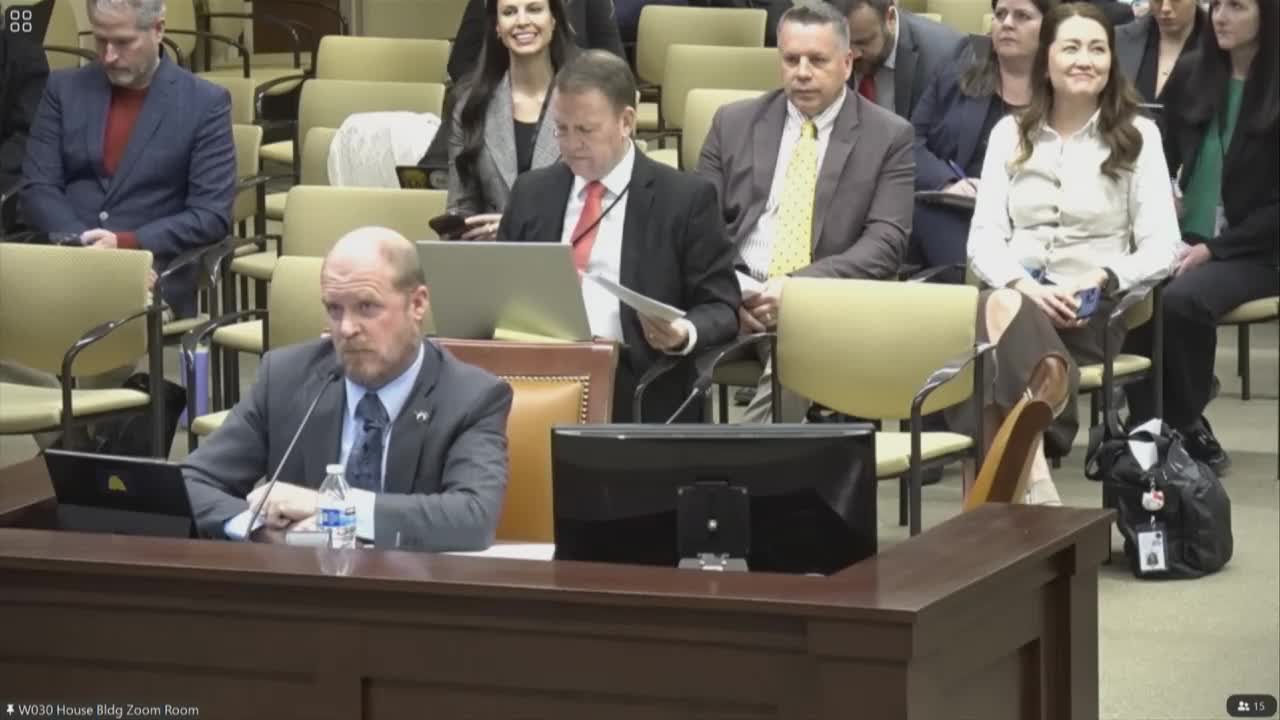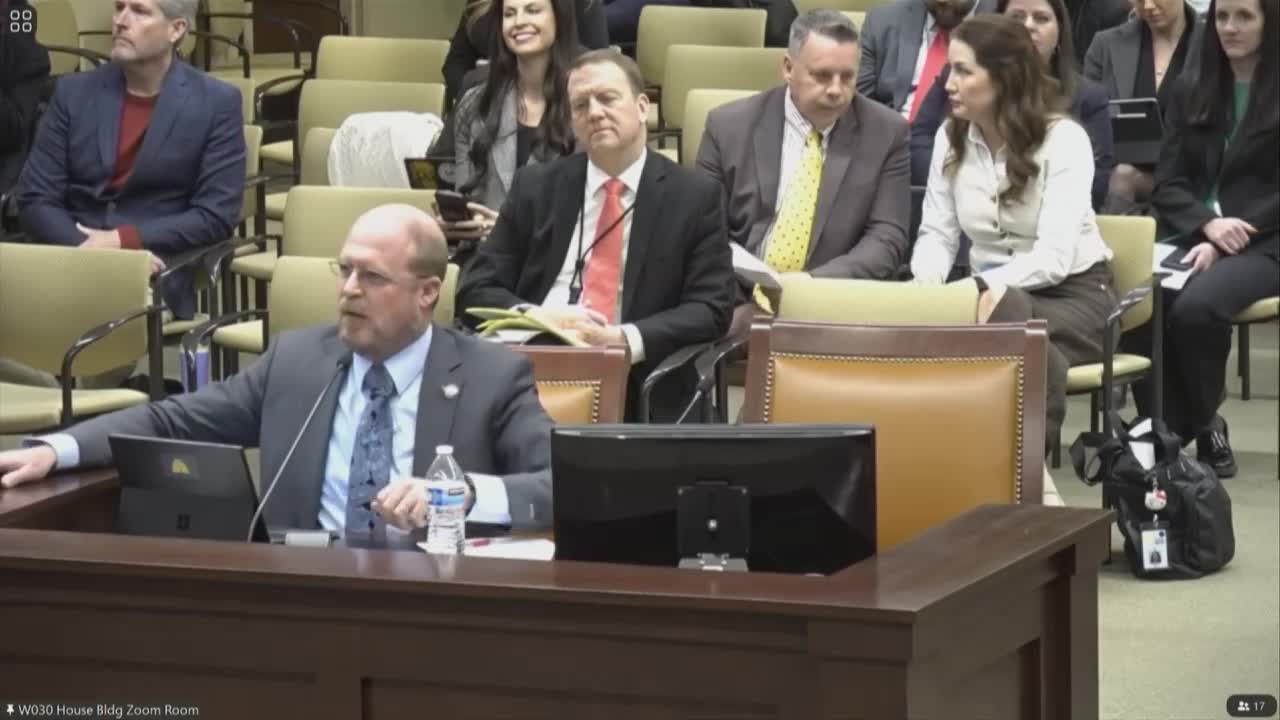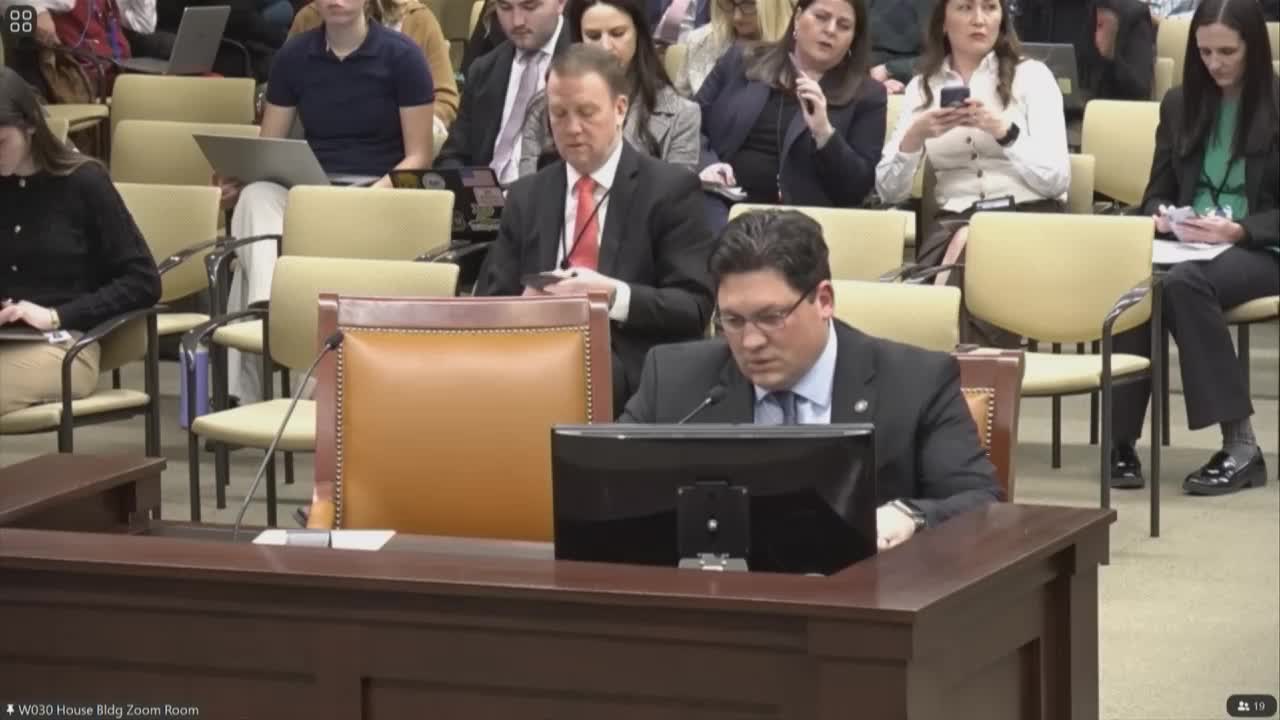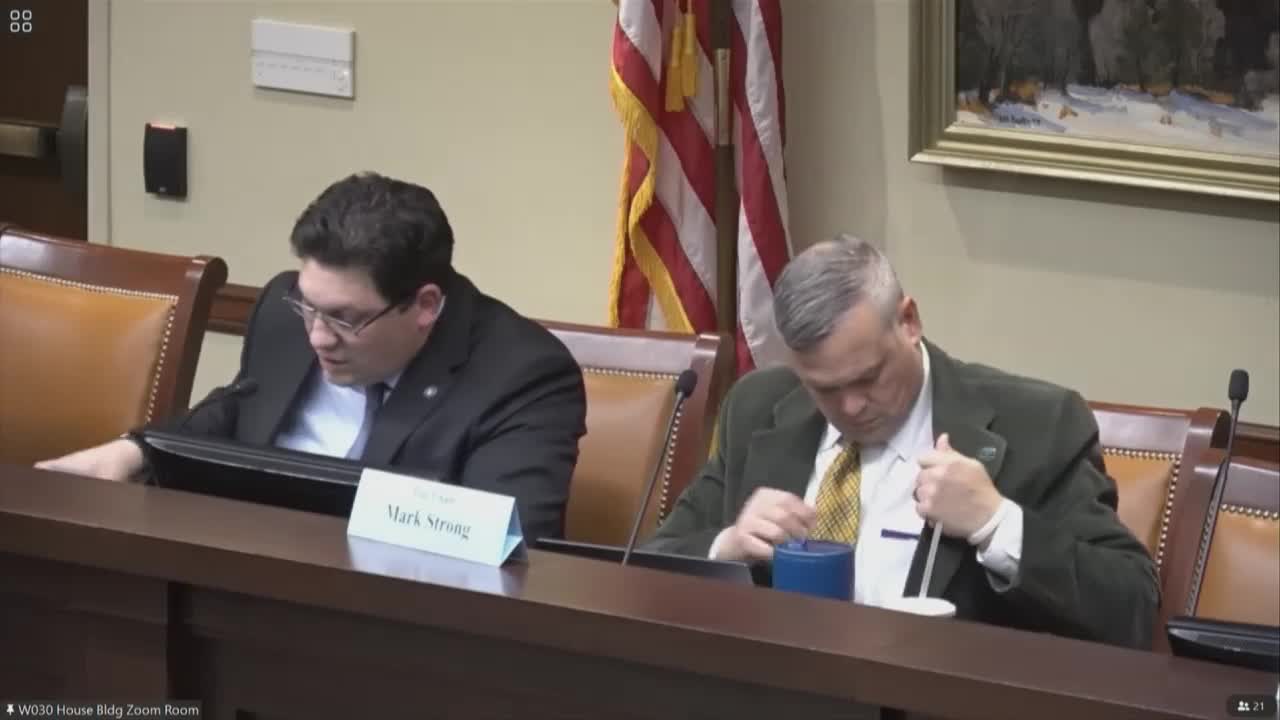Article not found
This article is no longer available. But don't worry—we've gathered other articles that discuss the same topic.

Committee approves HB 87 to increase penalties for large fentanyl trafficking; sponsors describe presumptive prison policy

Committee clarifies school weapons law with HB 128, committee gives favorable recommendation

Committee advances HB 40 with substitute to tighten school safety, cybersecurity and training requirements

